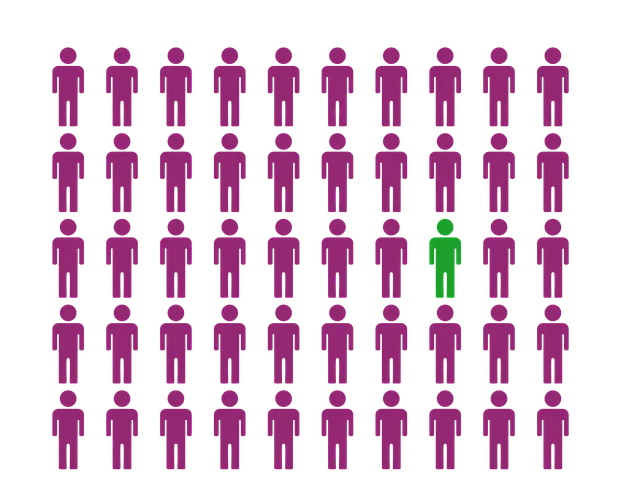Kaiser anger management offers a comprehensive approach to overcoming anger issues by identifying root causes through personal history, relationships, and environment. It emphasizes building resilience with expert-led programs teaching emotion regulation, assertive communication, boundary setting, and conflict resolution. Using cognitive behavioral techniques, mindfulness meditation, and deep breathing exercises, individuals retrain their minds for calm responses. Expressing feelings openly and developing coping mechanisms aid emotional regulation. This holistic method combines education and practical strategies to foster emotional intelligence and reduce impulsive reactions, ultimately transforming one's relationship with anger.
“Unleash your inner calm and bid farewell to fury with this comprehensive guide. Discover how Kaiser Anger Management offers a holistic approach to taming intense emotions. By exploring root causes, we uncover personal triggers that ignite our anger. Learn powerful techniques like cognitive behavioral therapy for retraining your mind towards serenity.
From mindfulness meditation to effective communication strategies, each step builds resilience and emotional intelligence. Take control of your temper and find freedom from fury with these evidence-based practices tailored for Kaiser anger management.”
- Understanding Kaiser Anger Management: Unraveling the Root Causes
- Recognizing Personal Triggers: A Journey to Self-Awareness
- Cognitive Behavioral Techniques: Retraining Your Mind for Calmness
- Mindfulness and Meditation: Finding Peace in the Present Moment
- Healthy Communication Strategies: Expressing Yourself Effectively
- Building Resilience: Coping with Fury and Cultivating Emotional Intelligence
Understanding Kaiser Anger Management: Unraveling the Root Causes

Many people struggle with managing their anger, often leading to feelings of frustration and a lack of control. Understanding Kaiser Anger Management is a crucial step in finding freedom from fury. At its core, Kaiser anger management focuses on identifying and addressing the root causes of chronic anger. This involves delving into personal history, relationships, and environmental factors that trigger angry responses. By recognizing these triggers, individuals can begin to develop healthier coping mechanisms.
The Kaiser approach emphasizes building resilience through various programs and workshops led by expert facilitators. These sessions teach participants effective strategies to manage and regulate their emotions, fostering a sense of calm and control. Additionally, treating chronic anger with Kaiser methodologies involves learning to communicate assertively, set boundaries, and resolve conflicts constructively. Through these comprehensive techniques, individuals can transform their relationship with anger, leading to improved overall well-being.
Recognizing Personal Triggers: A Journey to Self-Awareness

Recognizing personal triggers is a pivotal step in the journey towards managing and overcoming fury. It involves delving into one’s thoughts, emotions, and behaviors to identify specific situations or actions that ignite feelings of anger. This process requires self-awareness and introspection, enabling individuals to understand their unique response to various stimuli. By keeping a journal and reflecting on past incidents, one can uncover recurring patterns and triggers that lead to impulsive reactions.
For instance, a person might realize that certain phrases or critical remarks set them off, while being overwhelmed by unorganized spaces or delays in daily routines also contribute to heightened irritability. Once these triggers are identified, individuals can employ kaiser-based stress reduction methods to manage their responses. Treating chronic anger with kaiser methodologies offers long-term solutions for anger issues, helping one find freedom from fury and fostering a calmer, more balanced state of being.
Cognitive Behavioral Techniques: Retraining Your Mind for Calmness

Cognitive Behavioral Techniques offer a powerful tool for retraining your mind to respond calmly in situations that once triggered fury. This approach focuses on challenging and changing negative thought patterns and behaviors associated with anger. By working with a professional, like those offered by Kaiser Anger Management, you can learn to identify and reframe distressing thoughts, replacing them with more balanced perspectives.
Personalized plans for anger reduction with Kaiser often incorporate alternative therapies such as mindfulness meditation, deep breathing exercises, and cognitive restructuring. These strategies help individuals develop coping mechanisms that go beyond quick fixes, fostering long-term effective kaiser strategies for anger control. Through consistent practice, these techniques enable individuals to navigate challenging situations with greater composure and resilience.
Mindfulness and Meditation: Finding Peace in the Present Moment

In the quest to find freedom from fury, mindfulness and meditation emerge as powerful tools. These practices encourage individuals to focus on the present moment, a strategy that significantly reduces the intensity of anger. By cultivating awareness of one’s thoughts and emotions, people can pause before reacting impulsively, thus breaking free from the cycle of anger. Kaiser anger management programs emphasize this approach, offering long-term solutions for anger issues. Participants learn techniques to overcome road blocks in treatment, enabling them to achieve lasting relief from anger. Success stories of Kaiser anger relief bear testament to the effectiveness of these strategies, showing how individuals have transformed their lives by embracing mindfulness and meditation.
Healthy Communication Strategies: Expressing Yourself Effectively

Expressing your feelings and needs in a healthy way is a crucial component of finding freedom from fury. Kaiser anger management emphasizes the importance of open and honest communication, ensuring that you convey your emotions effectively while maintaining respect for others. One of the most effective kaiser strategies for anger control involves active listening—really hearing what the other person is saying and responding thoughtfully, rather than reacting impulsively. This approach fosters understanding and strengthens connections, defusing potentially explosive situations.
When implementing lifestyle changes for anger management, consider seeking out online resources for Kaiser anger control that offer practical tips and support. These tools can guide you in identifying triggers, developing coping mechanisms, and practicing mindfulness techniques to better regulate your emotions. Remember, effective kaiser strategies for anger control are not one-size-fits-all; finding what works best for you involves self-awareness, perseverance, and sometimes professional guidance from therapists or counselors specializing in anger management.
Building Resilience: Coping with Fury and Cultivating Emotional Intelligence

Building resilience is a key aspect of finding freedom from fury. According to Kaiser anger management guidelines, anger awareness training plays a crucial role in helping individuals understand and manage their emotional responses. By learning to recognize triggers and practicing mindfulness techniques, such as deep breathing exercises and meditation, patients can gain better control over their reactions. These practices not only foster emotional intelligence but also enable individuals to respond calmly rather than reacting with fury.
The Kaiser approach emphasizes the importance of overcoming anger issues through a combination of education and practical strategies. Mindfulness practices for Kaiser patients are designed to help them stay present, increasing self-awareness and reducing impulsive responses. This holistic method encourages individuals to navigate their emotions with grace and equanimity, ultimately transforming their relationship with fury and leading to lasting freedom from its grip.
Overcoming fury and finding freedom requires a multifaceted approach. By understanding Kaiser anger management, recognizing personal triggers, and employing cognitive behavioral techniques, mindfulness, healthy communication, and building resilience, individuals can break free from the cycle of rage. These strategies empower one to cultivate emotional intelligence and lead a calmer, more fulfilling life. Remember that anger management is a journey; consistent practice and self-awareness are key to achieving lasting change.






